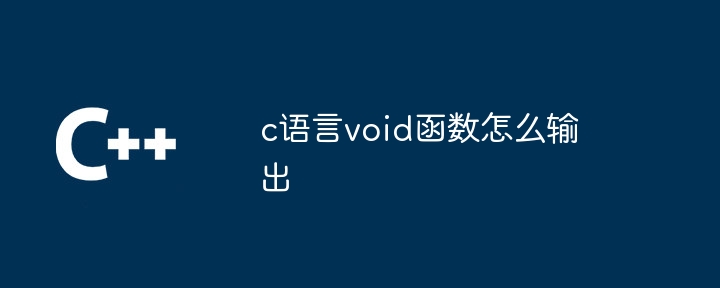在 C 语言中,void 函数无法直接输出。为了输出,可采用以下方法:(1) 使用 printf() 函数并将其返回值传递给变量;(2) 修改全局变量并访问其值;(3) 将非 void 函数作为参数传递给 void 函数并在非 void 函数中输出。

如何在 C 语言中使用 void 函数输出
开门见山回答:在 C 语言中,void 函数无法直接输出。
详细展开:
void 函数是一种不返回任何值的函数。因此,无法直接使用 void 函数来显示输出。为了在 void 函数中输出,需要采用以下方法:
立即学习“C语言免费学习笔记(深入)”;
- 使用 printf() 函数:可以通过将 printf() 函数的返回值传递给一个变量,然后在其他函数中使用该变量来间接输出。
- 使用全局变量:可以在 void 函数中修改全局变量,然后在其他函数中访问该变量来获取输出。
- 使用回调函数:可以将一个非 void 函数作为参数传递给 void 函数,并在非 void 函数中完成输出。
以下是这些方法的示例:
使用 printf() 函数:
#includevoid myFunc() { int output = printf("Hello, world!\n"); }
使用全局变量:
int globalOutput;
void myFunc() {
globalOutput = printf("Hello, world!\n");
}
int main() {
myFunc();
printf("Output: %d\n", globalOutput);
}使用回调函数:
void printMessage(char* message) {
printf("%s\n", message);
}
void myFunc(void (*callback)(char*)) {
callback("Hello, world!");
}
int main() {
myFunc(printMessage);
} 






























